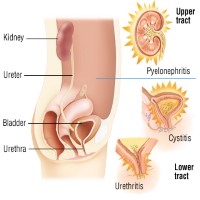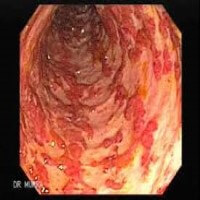UTI

The infection of the urinary tract is known as UTI or urinary tract infection. The sites where infection occurs are the bladder, urethra and kidney. When the lower part of the urinary tract is affected, then it is called cystitis or bladder infection, when the upper part is affected, it is called pyelonephritis or kidney infection. Women are more prone to have UTI than men. The young female population stays more at risk of UTI. The most common form of infection is a bacterial infection. The infection is recurrent in nature mostly, so proper follow-up and care have to be done by the patients and doctors.
Ayurvedic Description Of UTI
Urinary tract infections are classified under Mutravah sansthan vikaar. In Ayurveda, factors like Vegadharan (suppression of natural urges), Uska-aahar (intake of dry food and less intake of water) and Srotorodh (obstruction of the urinary tract due to stones, foreign bodies etc. are some of the causes of Mutravah sansthan vikaar. Aggravated doshas along with vitiated Apaan vayu obstruct the urinary tract, thus leading to the various Mutravah sansthan vikaar or urinary tract infections. As per the dominance of various doshas, they are further classified in ayurvedic texts.
Signs & Symptoms
- Pain while urinating
- Burning urination
- Urine incontinence
- Frequent urination
- Flank pain
- Fever
Causes and Risk Factors
1. Bacterial infection
The most common cause of infection is E.coli bacteria. The other bacteria that cause UTI are Staphylococcus saprophyticus, Pseudomonas, Chlamydia and Mycolplasma.
2. Sex
Young females are more at the risk, newly married women have been seen to get UTIs during the early marriage, and hence the term ‘honeymoon cystitis’ used for this. The reason women are more prone to have UTIs than men because, in females, the urethra is much shorter and closer to the anus. During the menopause period, the risk of UTI is high due to the low levels of estrogen hormone.
3. Prostate gland
In males, infection of the prostate or chronic prostatitis leads to recurrent infection of the urinary tract. Having unsafe sex with a woman who has a vaginal infection can also cause UTI in a man.
4. Urinary catheters
Catheterization also increases the risk of UTIs, both in males and females. The recurrent insertion, removal irritates the tract and gives bacteria a chance to attack and grow in the tract.
Self Care Tips
- Avoid intake of hot, oily, spicy, sour, salty, and bitter foods.
- Increase intake of liquids in the form of water, coconut water, and other cooling drinks but not cold drinks.
- Pitta-pacifying herbs like cardamom, coriander, licorice root, etc. should find their place in the meals of a patient.
- Avoid working in the sun or in a hot atmosphere such as near furnaces and boilers.
- Take a cold-water bath 2-3 times a day with ½ teaspoon of powdered red sandalwood added to the water.
- Urinate frequently and completely to empty your bladder every time.
- Do not hold the bodily urges.
- Maintaining the local hygiene is a must requirement in the case of UTIs.
The Ayurvedic medicines have brilliant and efficient results for UTIs, the herbal preparations from AAS Ayurveda are safe to take that even provide relief from recurrent UTIs.







